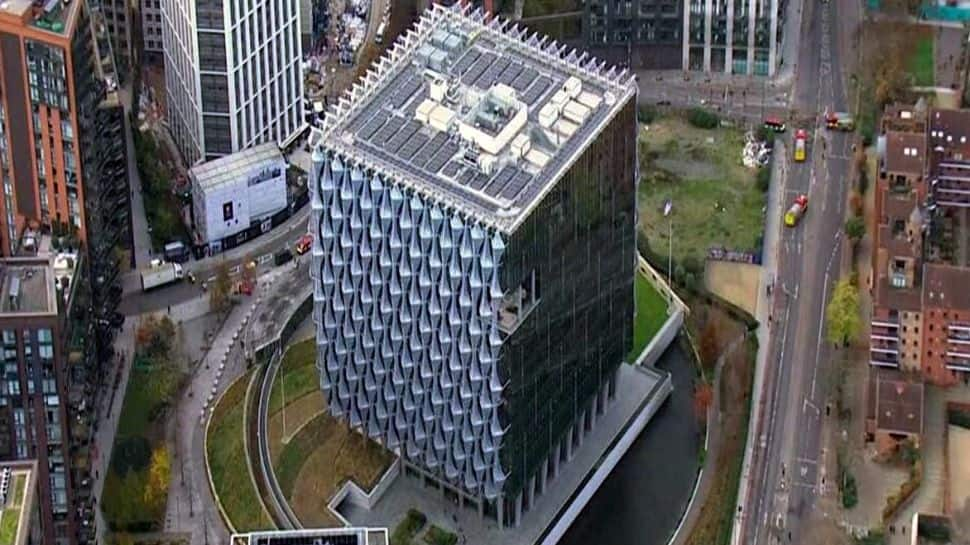Travel
‘Tell EU to defer Entry/Exit system’ to avoid serious travel delays – Lords committee

A Lords committee has warned the government of “serious delays for passengers” at London St Pancras, the Eurotunnel terminal at Folkestone and the Port of Dover unless the European Union postpones the launch of its entry/exit system (EES) later this year.
After the vote to leave the EU, the UK negotiated for British travellers to become “third-country nationals” facing a range of frontier hurdles, including the new electronic border system – currently planned for October or November 2024.
Every British visitor to the EU and wider Schengen area must provide prints from the four fingers on their right hand as well as a facial biometric. The process, which must be supervised by a European frontier official, will sharply increase the processing time at ports, rail terminals and airports.
The Justice and Home Affairs Committee of the House of Lords is calling on the government to “use all diplomatic efforts” to persuade Brussels to defer the introduction. The cross-party committee says travel disruption could be reduced by the use of an EU smartphone app that is under development. It would allow at least the facial biometric and the traveller’s personal data to be registered ahead of reaching the border.
The committee chair, Lord Foster of Bath, has written to Tom Pursglove, minister for legal migration and the border, asking him to “encourage the EU to delay the introduction of the EES until a smartphone application for pre-registration is ready”.
The letter says: “In the absence of a smartphone application to capture in advance information required for the EES (including facial image), we believe there is a significant chance of serious delays for passengers, and disruption in Kent.”
Airline passengers with British passports will undergo the formalities on arrival in the EU, with some nations estimating the requirement will quadruple the time taken to process each traveller.
The cross-party Lords committee looked in detail at the three UK locations where border controls are “juxtaposed”, with French Police aux Frontieres processing passengers before they board transport to France:
- The Eurotunnel terminal in Folkestone, where LeShuttle car-carrying trains depart for Calais
- The Port of Dover, the UK’s main ferry departure point to Continental Europe
- London St Pancras International, the hub for Eurostar trains to Paris, Brussels and Amsterdam
Getlink, the parent company of Eurotunnel, estimates the average time for processing a car through the French frontier will rise from under one minute to six minutes. It has invested €78m (£67m) in installing facilities at its terminals in Folkestone and Calais to allow motorists to get out of their cars to provide biometrics.
The highly constrained Port of Dover faces more of a challenge. There is insufficient room between the White Cliffs and the Channel to build facilities large enough to allow car occupants to safely leave the vehicle to register.
Authorities in east Kent are concerned about the risk of traffic gridlock. In January, Ashford Borough Council warned that 14-hour queues were a “reasonable worst case” scenario, were the scheme to be implemented as planned in the autumn.
The Lords committee says officials at Dover are pinning their hopes on what is described as “a ‘glorified iPad’ which is passed around the occupants in a vehicle and ensures that passengers do not have to get out of the vehicle”.
Eurostar initially capped passenger numbers on its trains from London to Paris, Brussels and Amsterdam because of extra post-Brexit passport checks, but services are now running at capacity. The cross-Channel rail firm is installing 49 entry/exit system kiosks.
A government spokesperson said: “We will continue to work closely with the EU and member states, as well as wider stakeholders including global carriers and ports, to minimise any impact of the upcoming changes.”
The EU claims the entry/exit system will save time, saying: “The EES replaces passport stamping and automates border control procedures, making travelling to European countries using the EES more efficient for the traveller.”
Once the entry/exit system is running, the next step required of UK travellers to Europe will be to obtain an online permit, known as Etias. This is likely to be introduced around six months after the EES is running – with an additional six months’ grace period allowed for travellers.
The Lords committee expressed concern about awareness of the forthcoming requirements among the travelling public. Abta, the travel association, told the committee of “the potential for serious disruption for UK travellers once these measures come into force, especially if individuals seek to travel without completing the required processes”.
Lord Foster’s committee has also been studying the UK’s own electronic travel authorisation (ETA), which currently applies only to nationals of Gulf countries, plus Jordan and Saudi Arabia.
In his letter to the minister, the chair asks for the planned autumn 2024 roll-out of the UK ETA to most other countries, and to the EU in spring 2025, to be deferred rather than risk adding to an already complex set of changes. He “strongly recommends that the government collaborates with the EU to avoid any clash between the introduction of the EU and the UK schemes”.
Lord Foster is a Liberal Democrat. He served as deputy chief whip during the 2010-15 coalition government.










